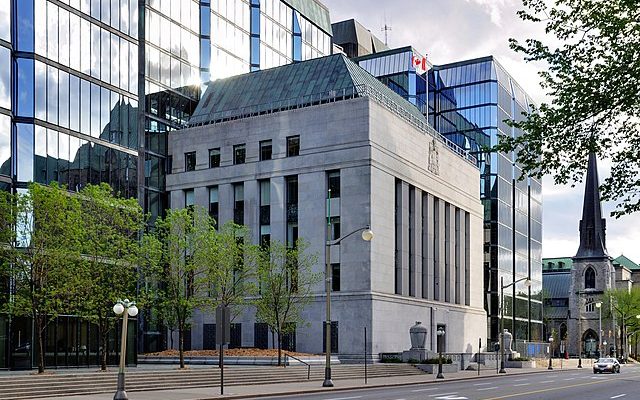Ottawa/CMEDIA: The Bank of Canada’s benchmark interest rate soared to 0.5 percent on Wednesday, for the first time since 2018.
The bank’s rate before the pandemic was 1.75 percent, and then quickly slashed down to 0.25 percent to help the economy.
The bank acknowledged in its announcement Wednesday that inflation is heating up even faster than anticipated.
In a statement accompanying the decision, the Bank of Canada said the war in Ukraine is “a major new source of uncertainty” that is driving prices higher on oil and other commodities.
“This will add to inflation around the world, and negative impacts on confidence and new supply disruptions could weigh on global growth. Financial market volatility has increased. The situation remains fluid and we are following events closely,” the bank wrote.
While talking about the Bank of Canada’s decision yesterday to raise its policy interest rate, Tiff Macklem, Governor of the Bank of Canada explains that after two years of extraordinary stimulus, we are now on a path of rising interest rates, what’s driving inflation in Canada. Tiff Macklem also discusses how the Bank will manage the next step in the Bank’s balance sheet operations.
Canada’s economy grew reportedly at a 6.7 percent annual pace in the last quarter of 2021, a figure that was described by the bank as “very strong.”
“This is stronger than the Bank’s projection and confirms its view that economic slack has been absorbed.”
Investors think there could be as many as five more small rate hikes before the year 2022 is out.
Lenders are already starting to move in reaction to the central bank’s hike. Royal Bank is raising its prime lending rate to 2.7 percent, starting tomorrow, up from 2.45 percent. The other big banks are expected to follow suit.
The ongoing invasion of Ukraine is another factor that could influence inflation or other parts of Canada’s economy, said the Bank of Canada cited
The price of commodities like fertilizer, natural gas, and oil skyrocketed due to Russia’s unprovoked attack on Ukraine, as the country is a major producer of these items.
Canada, being one of many countries that have pledged to no longer import oil from Russia, has caused a spike in its price. The price of the North American crude oil benchmark known as West Texas Intermediate topped $111 a barrel on Wednesday, its highest price in eight years.
The price for the energy that all Canadian consumers and businesses need would consequently rise which will further contribute to inflation.
“The invasion of Ukraine is putting further upward pressure on prices for both energy and food-related commodities,” the bank said. “All told, inflation is now expected to be higher in the near term than projected in January.”
In a monetary policy report accompanying its January rate announcement, The Bank of Canada said that while it expected inflation to remain around the five percent mark through the first half of the year, it forecast pressure would ease and annual inflation could drop to around three percent by the end of 2022.
#Canada; #BankOfCanada; #HikeInInterestRate; #RussiaInvadingUkraine; #Inflation





